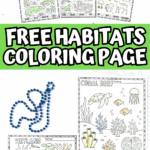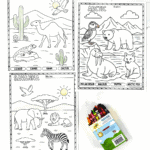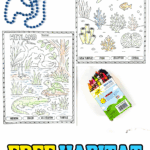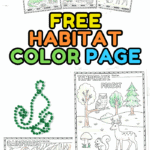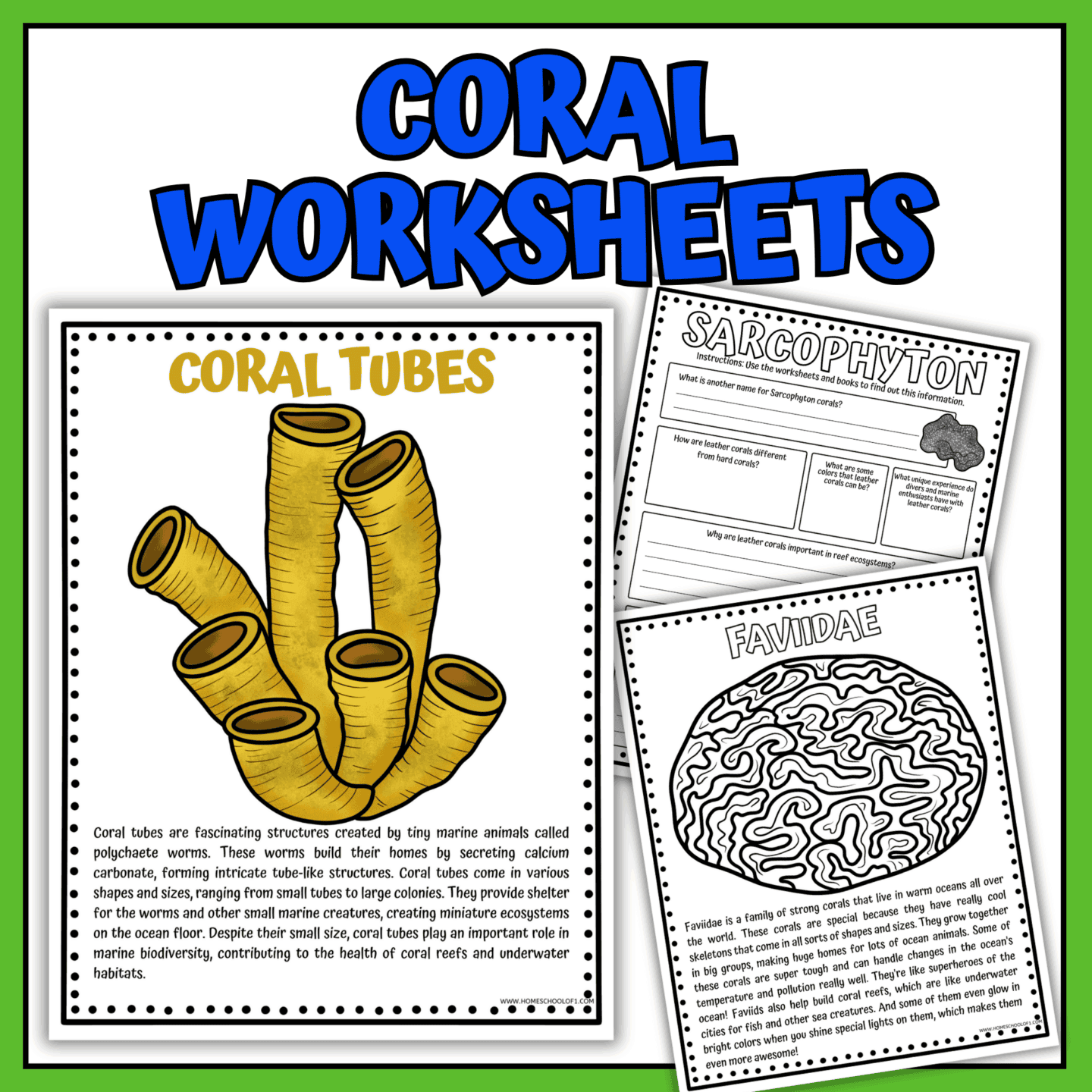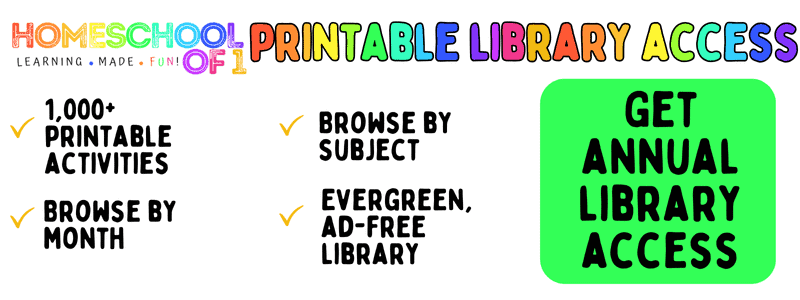Free Habitat Coloring Page for Kids
A habitat coloring page is a great way to help young kids learn about animals and the places they live, without needing a full lesson plan or screen time.
While your child colors a polar bear in the Arctic or a jaguar in the rainforest, you can start simple conversations about nature, introduce new words, and answer their questions as they come up.
It’s a hands-on way to build curiosity and support early learning, whether you’re at home, in the classroom, or somewhere in between.
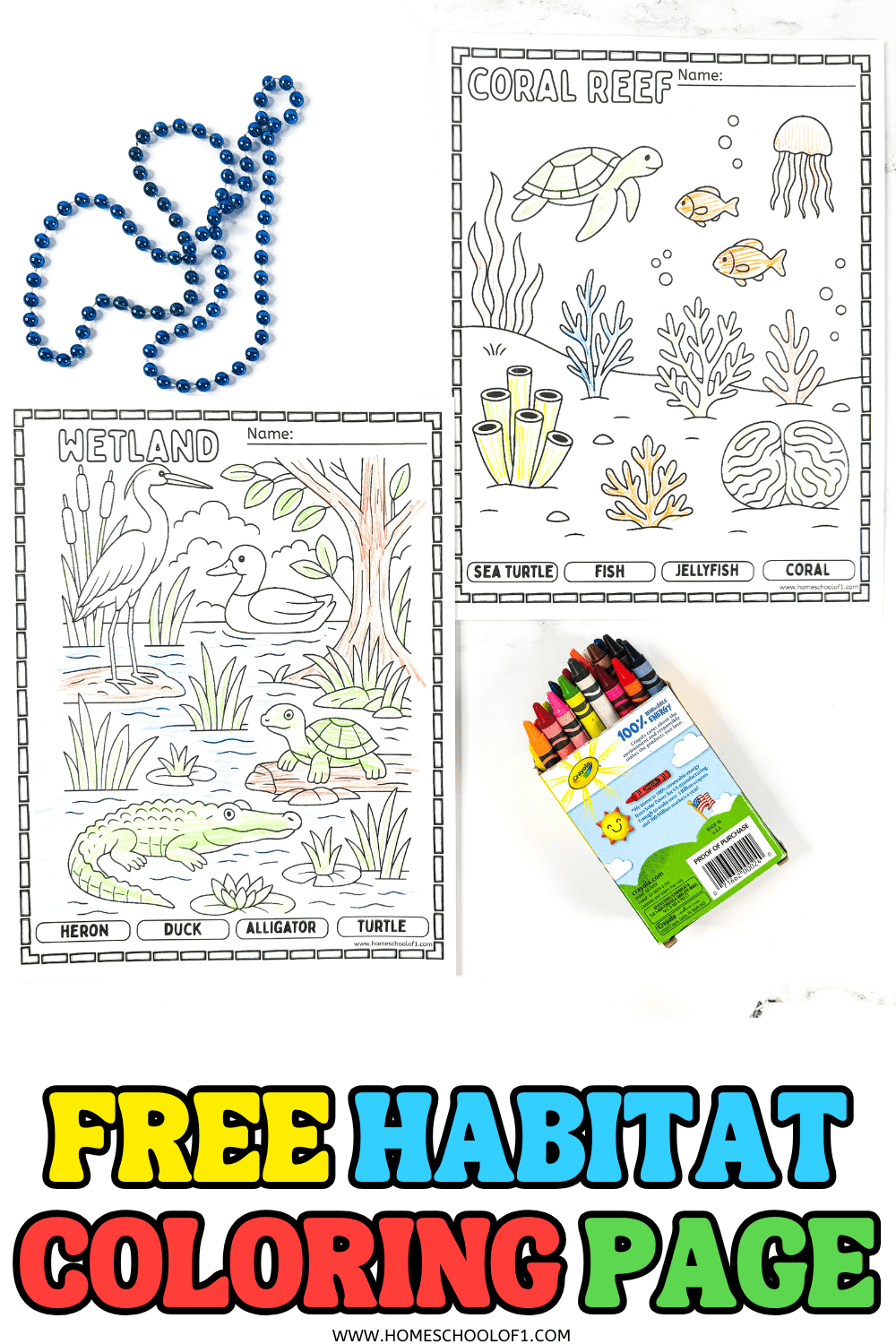
**This post may contain affiliate links. As an Amazon Associate and a participant in other affiliate programs, I earn a commission on qualifying purchases.**
What’s Inside the Habitat Coloring Sheets
This printable pack includes 7 black-and-white habitat coloring pages, each focused on a different environment.
Every page features four animals or plants that are commonly found in that habitat, with simple, bold outlines that are perfect for young kids to color.
These free coloring pages aren’t overly detailed, which makes them ideal for preschool and early elementary students who are still developing fine motor skills.
Each page also labels the animals and objects clearly, so children can begin connecting names with images as they color. Whether your child is just learning about different animals or you’re reinforcing a science unit, these pages are easy to fit into your day.
Here’s a quick overview of the habitats included:
- Desert – camel, lizard, cactus, hawk
- Savanna – lion, elephant, zebra, acacia tree
- Coral Reef – fish, sea turtle, coral, jellyfish
- Temperate Forest – deer, owl, mushroom, squirrel
- Rainforest – macaw, sloth, frog, jaguar
- Arctic – walrus, polar bear, arctic fox, puffin
- Wetland – duck, heron, turtle, alligator
Each page offers something different, so you can either use them one at a time or print the whole set to create a complete habitat unit.
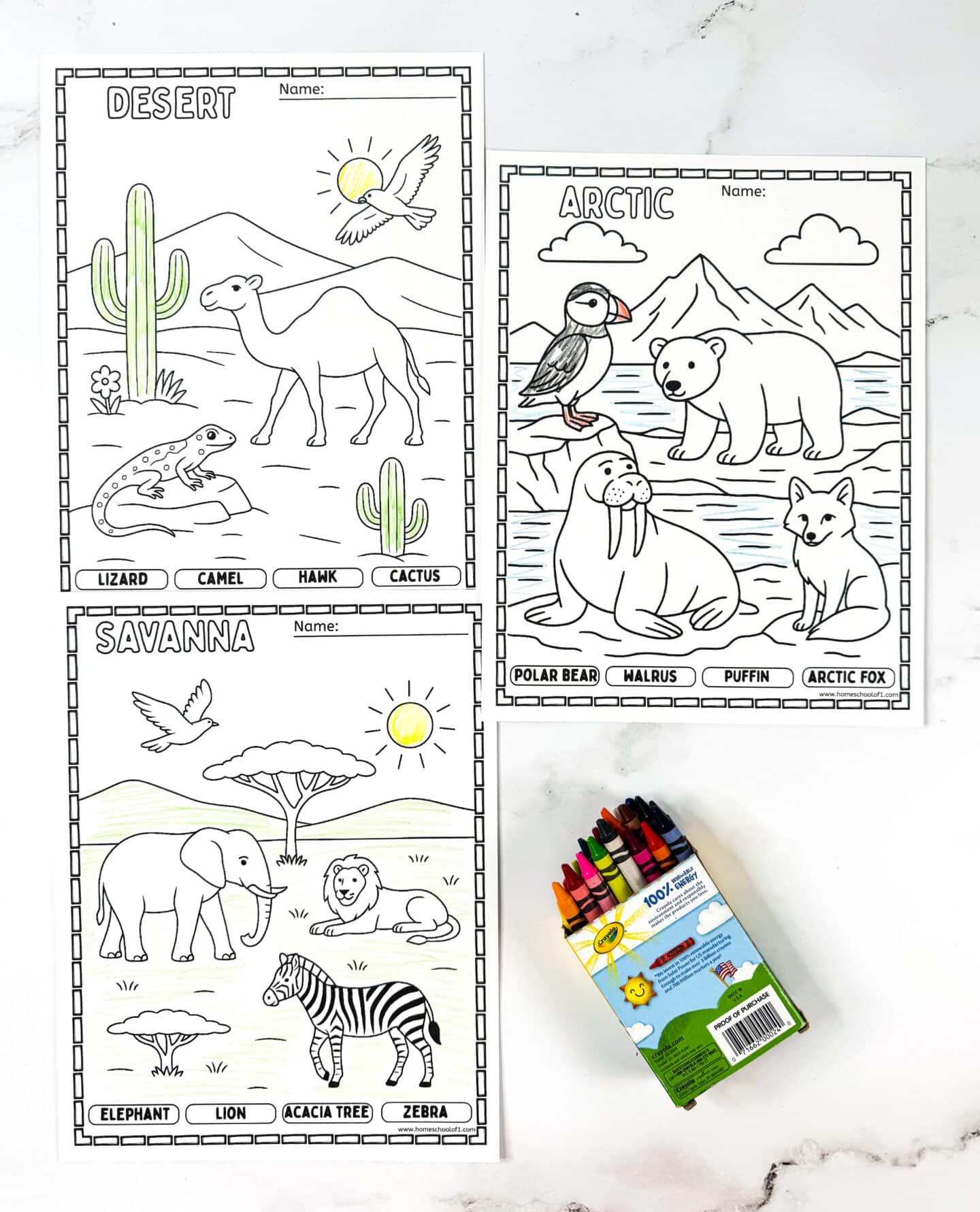
Educational Benefits of Habitats Coloring Pages
It’s easy to think of coloring as just keeping kids busy, but pages like these can do much more.
Talk About Nature – As your child colors a camel, you might find yourself chatting about deserts, heat, and how animals live with little water. These conversations often happen naturally.
Build Vocabulary – When kids color a puffin and see the word beside it, the connection sticks. New words become familiar without flashcards or drills.
Practice Fine Motor Skills – Coloring helps strengthen hand muscles and improves control, important groundwork for writing.
Create Calm – On hectic days, coloring gives children a quiet activity that feels relaxing while still being purposeful.
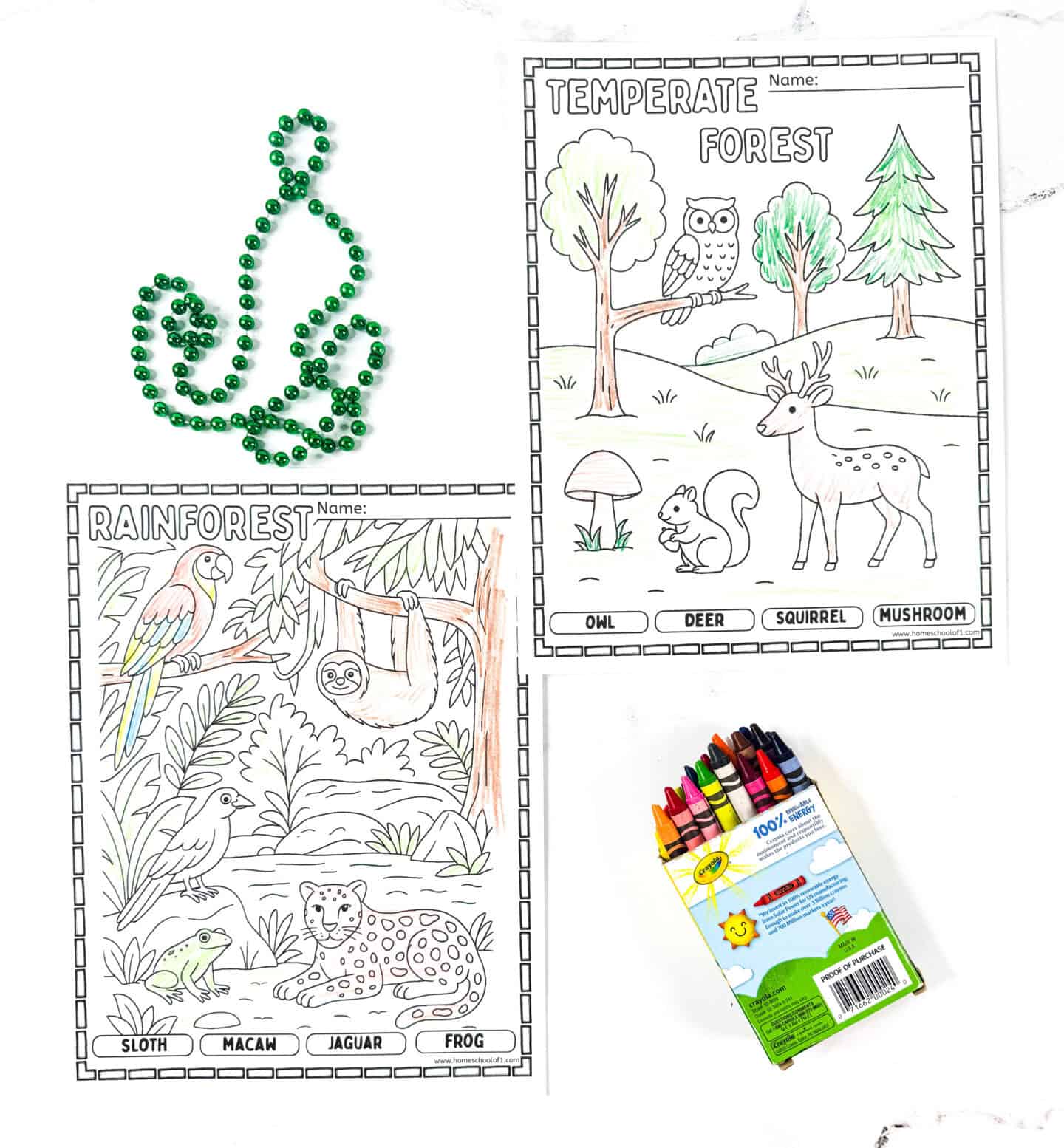
Simple Ways to Make These Pages More Educational
Coloring on its own is worthwhile, but with a few small tweaks, it can become a deeper learning activity.
- Ask open-ended questions while your child colors. A simple “Why do you think a polar bear has white fur?” can lead to a quick talk about camouflage. Or try, “What would happen if a desert animal had to live in the rainforest?” Kids usually have creative answers.
- Pair the page with a book or video. If they’re working on the coral reef sheet, a picture book or short ocean video helps connect the animals on the page with real-life habitats.
- You could even make a coral reef sensory bottle together to bring the colors and movement of the ocean to life, kids love watching the glitter and beads swirl like tiny fish in water.
- Use the coloring as a springboard for storytelling. If your child wants to explore beyond the animals on the page, try our random animal generator with fun facts and see which habitat it belongs in.
- Build a simple habitat journal. Print several pages, staple them together, and let your child add a cover page, extra drawings, or fun facts they’ve learned. It turns a set of coloring sheets into a little keepsake.
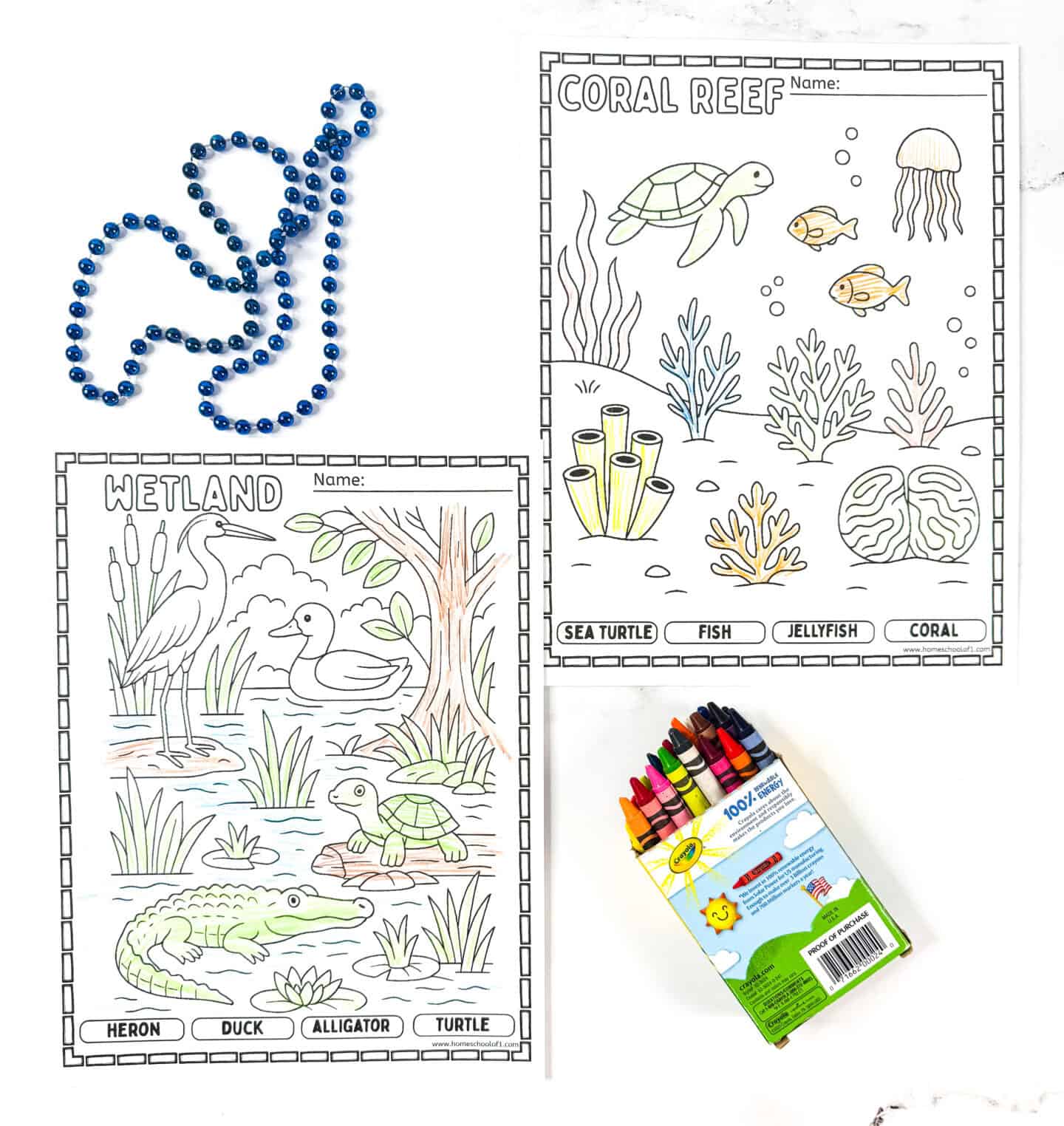
More Nature and Geography Printables
If your child enjoys the habitat coloring pages, these geography worksheets are an easy way to keep the learning going and connect animals to the world around them:
Landforms Worksheet – Kids can explore mountains, valleys, deserts, and more. It’s a simple way to see how different landforms shape where animals live.
Mushroom Coloring Page – A simple way for kids to explore forest life while practicing observation and fine motor skills.
Continents Worksheet – Help children spot where each habitat belongs on the map. Matching animals to continents makes geography feel concrete.
Petra Worksheet – Discover this ancient desert city carved into rock. It’s a great example of how people adapt to their environment, linking human history with natural habitats.
14 Wonders of the World Printables – From rainforests to mountains, these famous wonders highlight how nature and human creations connect across the globe.
Books About Habitats for Kids
These habitat coloring pages are a good place to start, but pairing them with books can make each environment feel even more real. Here are three I’ve used and recommend. They’re enjoyable to read, full of learning, and connect well with the themes in this printable.
Who Lives Here? – Each book in this series focuses on one habitat, like forests, wetlands, or the Arctic, and features real photos of the animals that live there. The information is short and easy to follow, which makes it great for younger kids or quick read-alouds.
The Big Book of the Blue – Perfect for the coral reef page, this book is packed with quirky ocean facts, beautiful illustrations, and questions that keep kids engaged. My son loved flipping through it again and again.
Over and Under the Rainforest – This picture book blends storytelling with nature facts as a child and guide walk through the rainforest. The calm text and rich illustrations give kids a clear sense of life both above and below the canopy.
Get Your Free Habitat Color Pages Here!
If you don’t see the form below, click here to get the free PDF.
Last Updated on 23 October 2025 by Clare Brown

